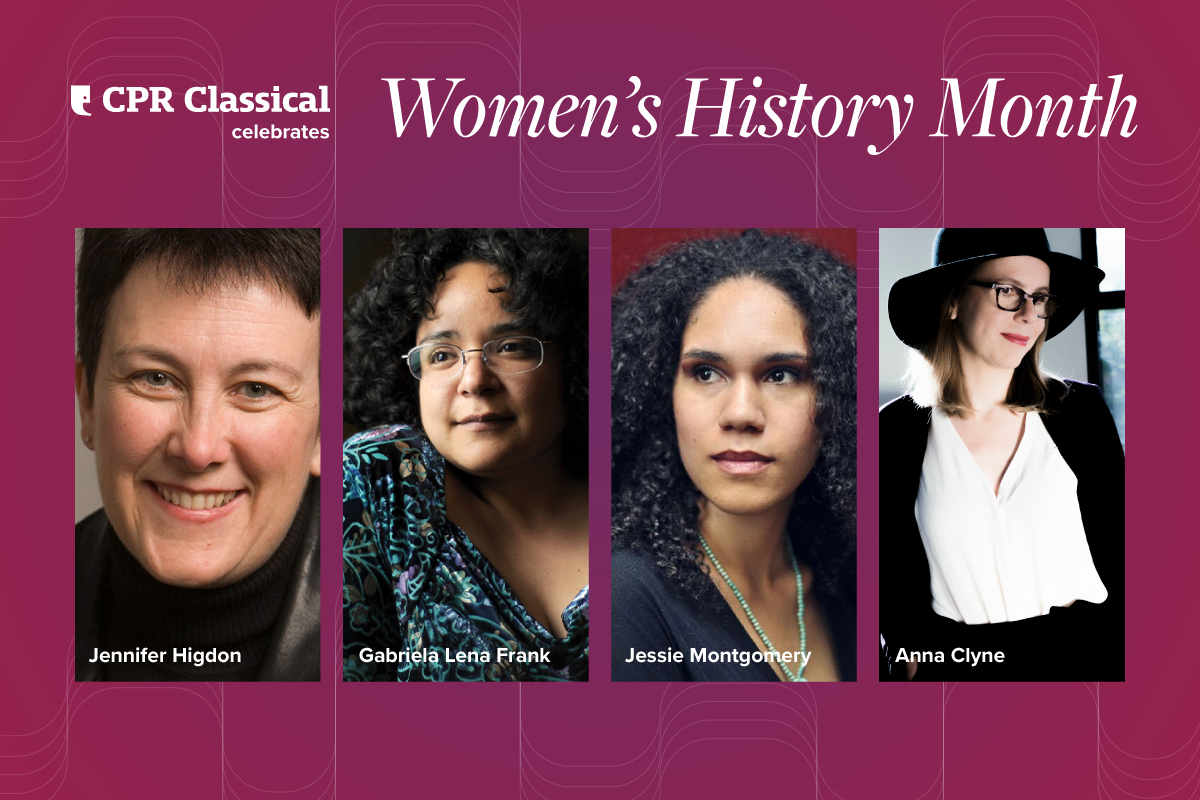
Classical music conductors are hugely influential in determining what music you hear at concerts. They are the single biggest gatekeepers for whether most living composers will have their works performed or not. Conductor Marin Alsop stands firm in her commitment to championing the works of women composers.
"I try to program with diversity in mind, always adhering to my principle that I have to believe in the music in order to champion it," she said.
We asked Marin for a list of 10 women composers we should know, but she cautions, “there are at least 50 who I can think of off the top of my head who are worth listening to and deserve to be represented."
Marin spoke about these 10 composers and why their work is important. Some comments are edited for clarity and brevity.
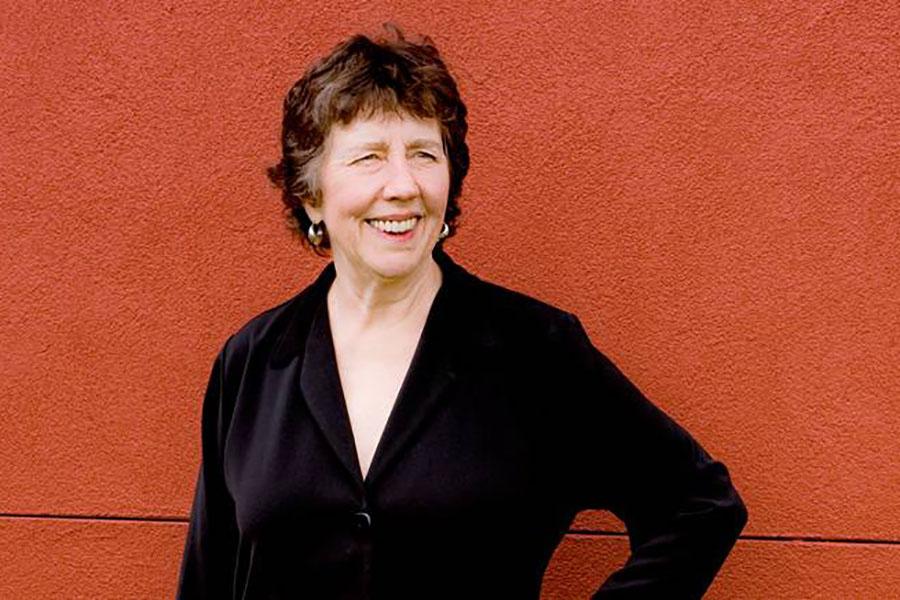
Joan Tower
I would say she’s the grande dame of women composers. She’s been working in the industry tirelessly for decades now. Won almost every award you can win. And, fortunately, we became friends and I recorded a disc of her music with the Colorado Symphony. She wrote sort of a response to Copland’s “Fanfare for the Common Man” called the “Fanfare for the Uncommon Woman,” which I was very touched by the fact that she dedicated it to me. We did an online recording of it to commemorate the installation of our new Vice President of the United States. So, for President Biden we recorded the Copland “Fanfare for the Common Man” and for Kamala Harris we recorded “Fanfare for the Uncommon Woman.” It’s so interesting because people often ask me, “Can you tell if it was written by a woman or can you tell if a woman was conducting?” Of course you can’t. But I would say that Joan Tower’s music is so un-typical to what you would have as a stereotype for “feminine” music. It’s muscular, rhythmic, lots of percussion, lots of driving rhythms. And I urge everybody to hear some of what she’s done. It’s really accessible but really challenging at the same time.
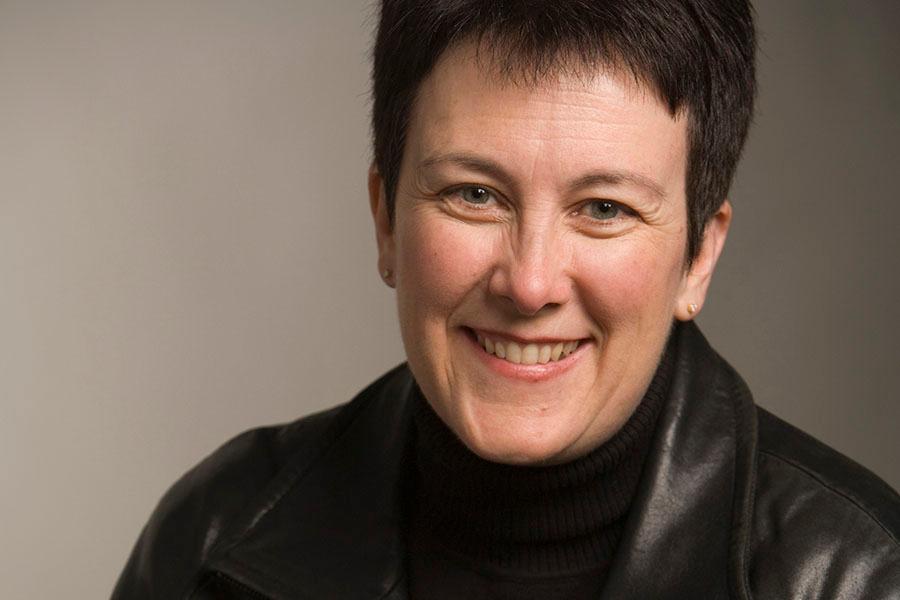
Jennifer Higdon
Jennifer is a Pulitzer Prize winning composer. She teaches at the Curtis Institute in Philadelphia. Her music is also quite muscular. And she uses a lot of vernacular in her music. She’s from the South so the idea of bluegrass and indigenous American music is something that’s prevalent throughout her works, but not limited to that at all. “Blue Cathedral” is absolutely gorgeous. It was dedicated to her brother whom she lost very early in life. At the end, she has an incredible effect where the musicians play these Chinese handbells, they’re like ceramic balls that are filled with beads that you shake. There’s this incredible spiritual effect that it creates. Another recommendation: Listen to Higdon’s Grammy-winning “Percussion Concerto.”

Anna Clyne
I heard a piece of hers and I invited her to the Cabrillo Music Festival in California where I was Music Director for 25 years. I just fell in love with Anna’s music. She’s a fascinating, multi-dimensional artist who is interested not just in music but also in dance, visuals, and the whole intersection of the performing arts. She’s done several commissions for me and they’ve always been varied and different. Most recently I recorded her new cello concerto called “Dance” with (cellist) Inbal Segev. One of the tracks just passed 3 million listens! When I was invited to conduct the last night of the Proms in 2013, they said, "Is there a composer who you’d like to do the opening piece?" And I immediately thought of Anna. She wrote this fantastic, barn-burning piece called “Masquerade.” People loved it! She’s really able to bring the Old World and New World together in a very different way. We’re in the process of finishing up a CD of her music with the Baltimore Symphony Orchestra!
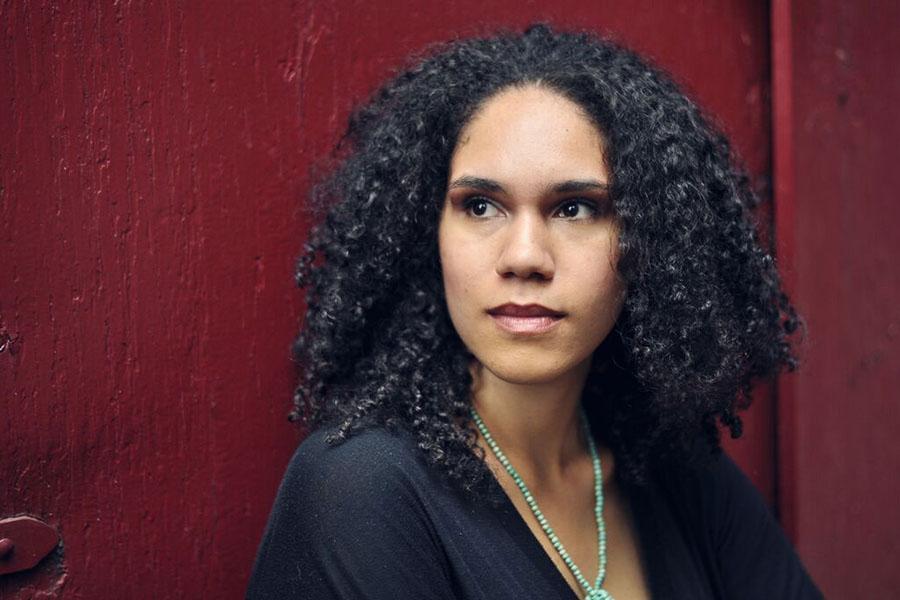
Jessie Montgomery
Jessie is an incredible talent. She’s a violinist herself so she has a real connection to writing for strings, particularly for violin. I’ve done many of the pieces that she’s done for strings including a piece called “Strum,” which is great fun. It’s sort of a play on pizzicato and the kind of sounds string players can make through that technique. She’s a shooting star. Her pieces are being played everywhere right now. She’s able to combine American vernacular into what she’s doing. I love this blending of styles. Some of it sounds improvised. Some of it has a jazz influence Some of it has a spiritual influence woven in. And I think it’s music of our time. It’s music of the next generation and that makes me happy to see younger people being able to relate to this new music.
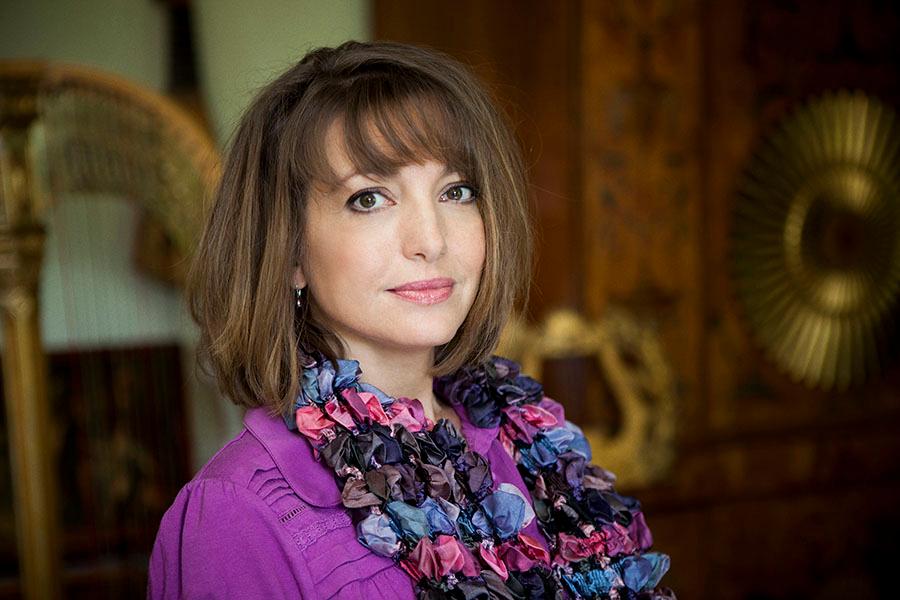
Roxanna Panufnik
Roxanna Panufnik is a British composer. She is the daughter of a quite famous Polish composer named Andrzej Panufnik. There’s a piece of hers that I recorded last week here in Vienna -- “Two Composers, Four Hands.” It’s inspired by her father’s piano duo ("Two Pianos, Four Hands") with the composer Lutosławski. During the Second World War they used to play these clandestine recitals together when it was really forbidden for them to be gathering and performing. So this is a piece she wrote for double string orchestra -- small string orchestra, two of them -- and it’s a call and response between what she imagined her father and Lutosławski would be saying compositionally. Eventually their styles come together. She did a commission work for me for double choir AND double orchestras AND two conductors. This was an idea I had for her. I wanted to highlight women on the podium. So she selected two women from history to focus the text on. And we both had different meters to conduct. It was great fun! As soon as we can have choirs again I’ll be on it!
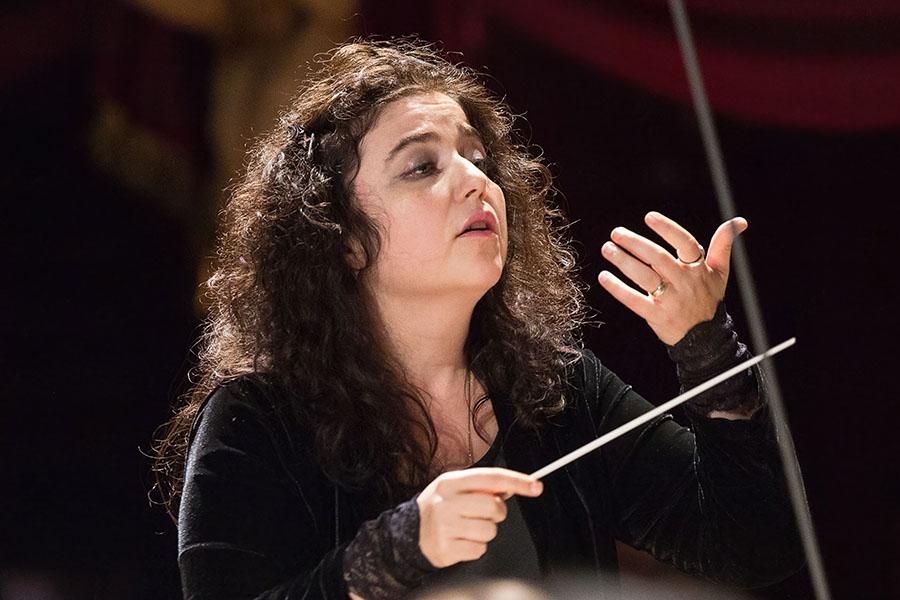
Lera Auerbach
Lera is a real polyglot. She’s an author, she’s just one of these incredibly multi-talented people. The way I got to know her, interestingly, is when I was about to take over the Vienna Radio Symphony, we were talking about who we could commission for a brand new piece to mark the beginning of my tenure, and her name was suggested to me. And I had only heard of her not as a composer, but as a performer and a conductor herself, so I was extremely happy to get to know her and work on this new piece that she did for me. And it was super interesting because she used the ondes martenot, which is a very unusual French instrument, and sounds sort of like the theremin. So that was way cool. And that was a great introduction to her and to my tenure as chief conductor. I think promoting womens’ music, seeing women on the podium, seeing women represented as composers is really critical to me. And I think it set up the start for me really beautifully.
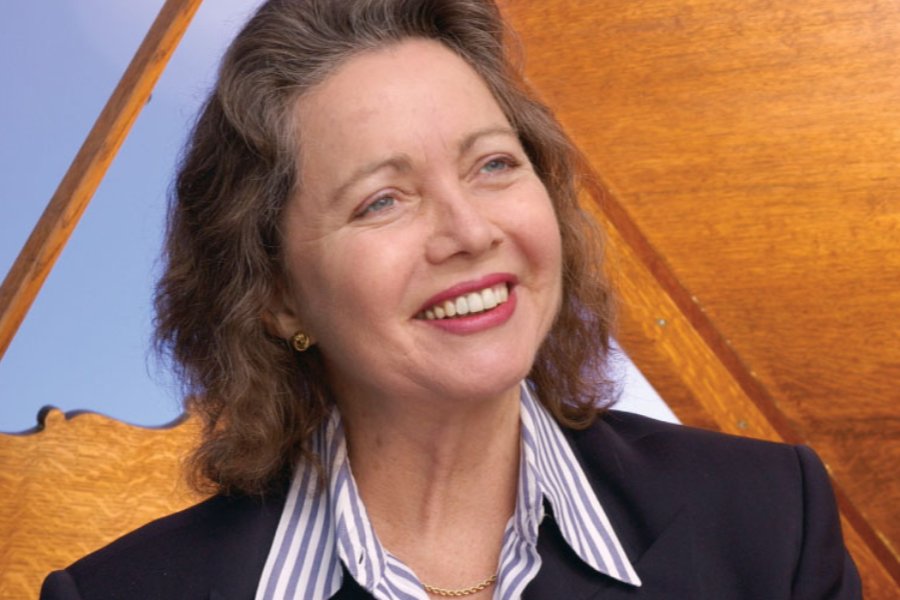
Ellen Taaffe Zwilich
She and Joan Tower are the giants in American music. They paved the way for everyone else that came after them. And I’ve just recently reconnected with Ellen -- I did a couple pieces of hers recently for some of the reduced digital concerts that orchestras are doing. And she’s working currently on a new piece to pay tribute to Ruth Bader Ginsburg, which I’m hoping I’ll be able to perform as soon as we’re back in the concert hall. But to me, she really is one of the leading figures in American classical music and certainly one of the leading women to pave this path. And she’s great fun to be around, she’s got a great sense of humor. Her music is really varied. To give you an idea, she first really came to prominence when Pierre Boulez programmed one of her pieces so that gives you a sense of the range of what she writes.
Stacy Garrop
Stacy Garrop is a composer I met and invited to the Cabrillo festival a few years ago, and she’s been returning under the new music director and I’m happy to see her career taking off. Her brand new piece is called “Battle for the Ballot,” and it’s terrific! She’s a voice of today. A young composer, really thinking about current events, how they impact art and what’s going on in the world. And this piece, “Battle for the Ballot,” was really interesting because as she found out more about the influence of African American women on the development of the amendment for the vote, she went back and changed her whole approach to the piece because she realized that the narrative she had learned and the narrative that most of us have been told was really not the truth. And I really admire how she went back and changed the trajectory of the piece entirely. I think it’s a wonderful work.
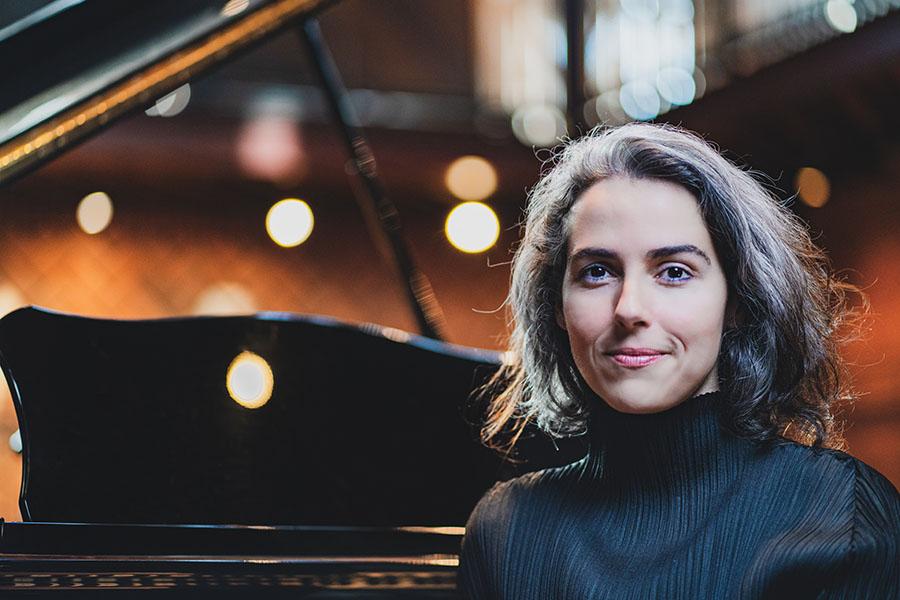
Clarice Assad
I first met her as “the daughter of” [Sergio Assad] and I could relate to that because I was always introduced as “the daughter of” as well, because my parents were quite well-known classical musicians. But she’s really come into her own and I think now the same thing happens to her father, where he’s introduced as “the father of” as they did with my dad! She was born in Brazil, and of course when I was music director of the Sao Paulo Symphony, I was able to commission works by Brazilian composers and that’s where I reconnected with her. She’s done several pieces for that orchestra and with me conducting. She’s a great arranger as well. She’s a beautiful singer and performer herself. Sort of more of a crossover style (between jazz, rock, classical, Brazilian folk) but really fascinating and just a wonderful person, too.
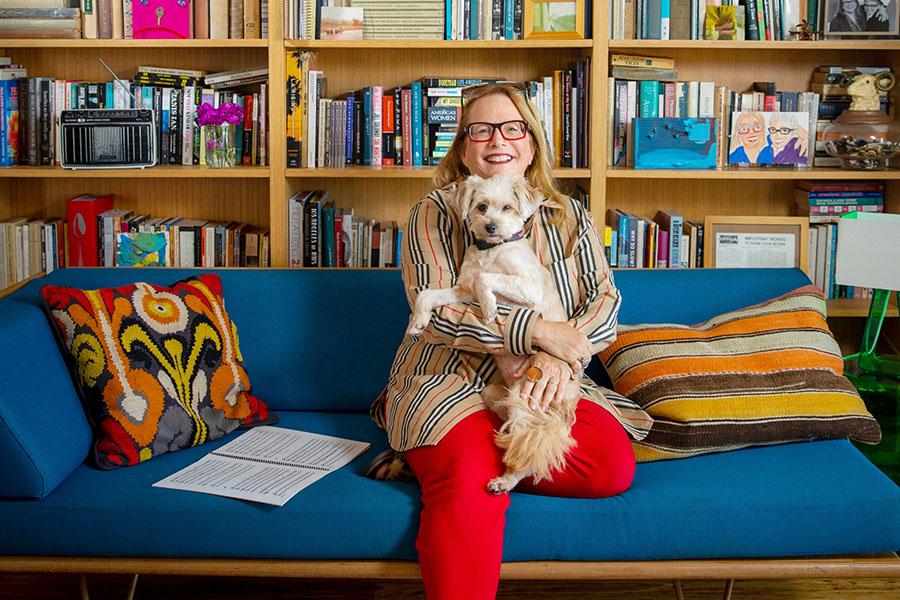
Laura Karpman
I’m happy to introduce your listeners to Laura Karpman. I think we were at Juilliard at the same time and she studied composition with Milton Babbitt, who was a very edgy American composer. What’s interesting is that of all the composers we’ve talked about, people probably have heard more music by Laura Karpman than anyone else, but they haven’t known it. Because she writes prolifically for films and television. She’s won several Emmys. She’s currently working on a series called “Lovecraft Country.” She’s so versatile, and we’ve done a lot of projects together. She did a beautiful project with Jessye Norman, and it was really comprehensive. You know she’s not limited to just writing music specifically, she really wants to engage in the whole theatricality of a project. And she’s just super creative and writes a lot of music.
Listen to CPR Classical by clicking “Listen Live” at the top on this website, or download the Colorado Public Radio app. Listen on your radio to CPR Classical at 88.1 FM in Denver, or on radio signals around Colorado. You can also tell your smart speaker to “Play CPR Classical."







